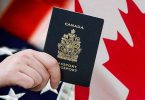The Canada Experience Class (CEC) is an immigration program aimed to help temporary foreign workers and foreign students to apply their work experience and education towards their applications for residency. Canada Experience Class is also one of the fasted routes to Canadian permanent residence, taking as little as three to four months to process!
Top ranking candidates are chosen in the Express Entry pool, and are given an invitation to apply for Permanent Residence
In order to apply you must meet the minimum requirements, have Skilled Work Experience, and meet the language ability requirements.
Table of Contents
Eligibility for canadian experience class
Canada Experience Class applicants must:
- Have at least 12 months of full-time (or an equivalent in part-time) skilled work experience in Canada within the last three years. This experience must have been obtained while on a valid work permit and needs to be in one or more occupations classified as skill type 0, A or B under the National Occupational Classification (NOC). The one year of experience can be gained in two different NOC codes, so long as they are skilled positions and the work experience is gained legally;
- Plan on living outside the province of Quebec; and
- Meet the required language levels needed for the job for each language ability (speaking, reading, listening, and writing). These levels are outlined in the table below and must be proven by taking an approved language test.
Notably, work experience gained through self-employment and work experience gained while a full-time student are not eligible under the Canadian Experience Class.
Language ability
You must:
- meet the minimum language level of:
- Canadian Language Benchmark 7 for NOC 0 or A jobs or
- Canadian Language Benchmark 5 for NOC B jobs
- take approved language tests for:
- writing
- reading
- listening
- speaking
- describe the test results in your Express Entry profile
Your language tests are valid for 2 years after the date of the test result and must be valid on the day you apply for permanent residence.
- meet the minimum language level of:
Education
There is no education requirement for the Canadian Experience Class.
If you want to improve your rank in the Express Entry pool for immigration purposes, there are 2 ways you can do this.
- If you went to school in Canada, you can get points for a certificate, diploma or degree from a Canadian:
- secondary institution (high school) or
- post-secondary institution
or
- If you have foreign education, you can get points for:
- a completed foreign credential, and
- an Educational Credential Assessment (ECA) report for immigration purposes from a designated organizationshowing that your education is equal to a completed certificate, diploma or degree from a Canadian:
- secondary institution (high school) or
- post-secondary institution
Where you can live in Canada
You must plan to live outside the province of Quebec. The province of Quebec selects its own skilled workers. If you plan on living in Quebec.
When you fill out your profile, we’ll ask you where you plan to live in Canada. You don’t have to settle in that province or territory.
If you’re a Provincial Nominee, you must settle in the province or territory that nominated you.





